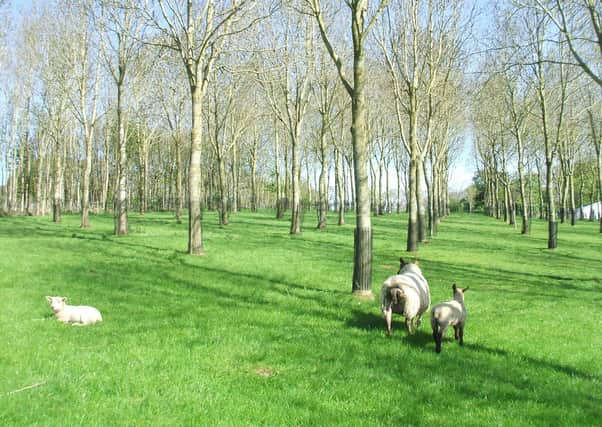Webinar set to explore the best ways to integrate trees in modern farming systems


In order to help farmers evaluate the use of agroforestry for them, key findings from the Agroforestry research programme undertaken at the Agri-Food and Biosciences Institute, Loughgall (AFBI) will be presented on Tuesday, September 1 at 7pm in the first of two Agroforestry webinars hosted by CAFRE during September.
The experience and impact from integrating trees into both pastoral and arable systems since 1989 will be outlined by researchers Dr Rodrigo Olave (AFBI) and Prof Jim McAdam (QUB and formerly of AFBI).
Advertisement
Advertisement
This information will enable farmers to consider Agroforestry as an option within the Environmental Farming Scheme which is currently open for applications.
Dr Rodrigo Olave commented: “Agroforestry at AFBI, Loughgall offers a well-equipped resource for research and development particularly into the more fundamental environmental issues arising from what is proving a viable land use option to contribute to climate change mitigation and improve farmland productivity, sustainability and the resilience of grazing systems.”
Professor Jim McAdam added: “Research by AFBI, has shown that silvopastoral and silvoarable systems, where sheep graze managed grassland between wide spaced and high yielding trees and cereal crop respectively, to be a viable land use option delivering multiple ecosystem services with favourable economic returns.”
Dr Olave continued: “Ash, sycamore, cherry, oak, poplar and orchards of different tree species are currently being tested in a range of situations and all aspects of the output from and ecological interactions within, the systems are being monitored.
Advertisement
Advertisement
“The messages and local application from this early research have proved to be highly relevant to the farming climate we now find ourselves in.”
The Agroforestry programme of work at AFBI is working closely with CAFRE to ensure the findings from the work are accessible and used by farmers.
Future research in this area will investigate the response and resilience of tree species to future climate change as well as biodiversity benefits, their role in reducing GHG emissions and mitigating the impact of other gases such as ammonia.
These research areas are being evaluated locally and internationally as a component of multiple research programmes supported by the European Union, DAERA in Northern Ireland and DAFM in the Republic of Ireland.
Advertisement
Advertisement
To get more detail on how to watch the webinars please visit the News & Events section of the CAFRE website (www.cafre.ac.uk).
During each webinar there will be the opportunity to ask questions to the panel or if you wish to send questions in advance of the webinar please email them to [email protected].
Guidance and information on research and development for Agroforestry can be found on the AFBI web page at www.afbini.gov.uk.